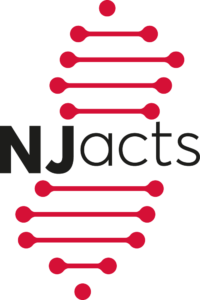 Please read Dr. Panettieri’s article in Science Translational Medicine titled, “Oncostatin M expression induced by bacterial triggers drives airway inflammatory and mucus secretion in severe asthma.“
Please read Dr. Panettieri’s article in Science Translational Medicine titled, “Oncostatin M expression induced by bacterial triggers drives airway inflammatory and mucus secretion in severe asthma.“
Asthma is an increasingly common respiratory disease with patients experiencing episodic acute exacerbations of disease with varying degrees of inflammation, mucus hypersecretion, reversible airflow obstruction, and airway hyperresponsiveness. The exact triggers and underlying molecular mechanisms causing acute exacerbations remain poorly defined, although viruses, bacteria, environmental toxins, ozone, and allergens are believed to contribute to acute exacerbations and progressive worsening of disease. About half of patients with asthma develop type 2 cytokine-driven inflammation; most molecularly targeted therapeutic interventions target these pathways, including interleukin-4 (IL-4) receptor (IL-4R), IL-5, IL-13, and immunoglobulin E (IgE). In contrast, very few treatment options are available for patients with non–type 2 asthma, beyond nonspecific treatments such as inhaled corticosteroids and β-adrenergic agonists. Identifying triggers of disease exacerbation, the molecular consequences of exposure to such triggers, and points of therapeutic intervention to prevent hyperreactivity to such triggers could address a remaining unmet need for patients living with asthma. To read the full article.
Oncostatin M expression induced by bacterial triggers drives airway inflammatory and mucus secretion in severe asthma. Headland SE, Dengler HS, Xu D, Teng G, Everett C, Ratsimandresy RA, Yan D, Kang J, Ganeshan K, Nazarova EV, Gierke S, Wedeles CJ, Guidi R, DePianto DJ, Morshead KB, Huynh A, Mills J, Flanagan S, Hambro S, Nunez V, Klementowicz JE, Shi Y, Wang J, Bevers J 3rd, Ramirez-Carrozzi V, Pappu R, Abbas A, Vander Heiden J, Choy DF, Yadav R, Modrusan Z, Panettieri RA Jr, Koziol-White C, Jester WF Jr, Jenkins BJ, Cao Y, Clarke C, Austin C, Lafkas D, Xu M, Wolters PJ, Arron JR, West NR, Wilson MS. Sci Transl Med. 2022 Jan 12;14(627):eabf8188. PMID: 35020406 DOI: 1126/scitranslmed.abf8188 Epub 2022 Jan 12.
